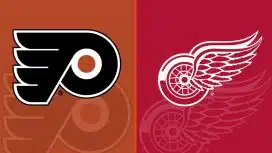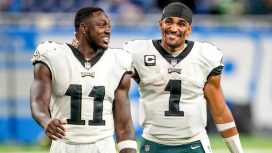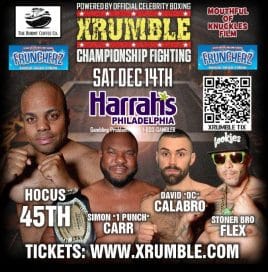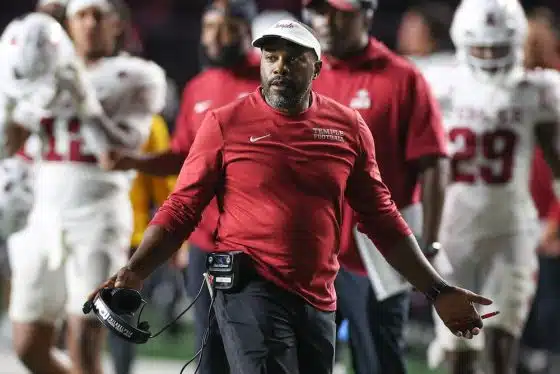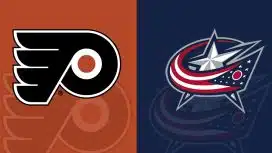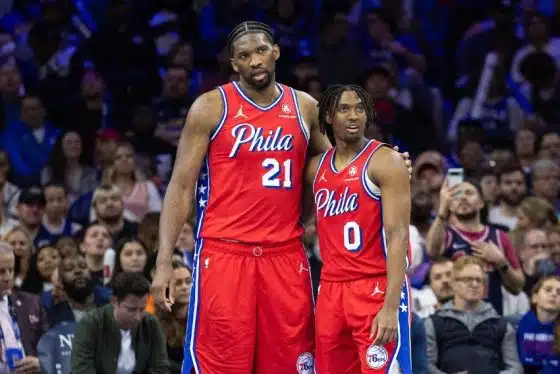Phillies
Top 25 Players to Ever Play for the Phillies: No. 9, Curt Schilling
By Tim Kelly, Sports Talk Philly editor
I once had the chance to ask a former MLB star what he thought of Curt Schilling's Hall of Fame case. He told me that he hoped Schilling got elected to the Hall of Fame, but used an expletive to describe him as a person. His opinion probably best summarizes the feeling that some voters have publicly said they have on Schilling, for a variety of different reasons.
Think what you will about Schilling as a person, his legacy as a player speaks for itself.
In his 20-year career, the Alaskan-born right-hander left such a mark that if he is every elected to the Hall of Fame, you could make a case for him going in as a member of any of three teams: the Philadelphia Phillies, Arizona Diamondbacks or Boston Red Sox.
Following stops in Baltimore and Houston to open his career, Schilling was traded to the Phillies for reliever Jason Grimsley (most known for his connection to PEDs) in April of 1992. This began the most extended stop of Schilling's career.
In eight-and-a-half seasons with the Phillies, Schilling won over 100 games, for a team that failed to post a winning record in every season except one of those. In 1993, the lone winning season that Schilling was a member of the Phillies for, Schilling helped push the Phillies to an improbable National League pennant. He also began to build his case as one of the greatest postseason performers in the history of the sport, as he posted a 2.59 ERA in four postseason starts, including a complete-game shutout in Game 5 of the World Series against a Toronto Blue Jays lineup that featured three future Hall of Famers.
In the Summer of 2000, Schilling, who was approaching his mid-30s, pushed for and received a trade to a contender in the Arizona Diamondbacks. Schilling joined future first-ballot Hall of Famer Randy Johnson, to form one of the greatest one-two punches in MLB history.
While the Diamondbacks didn't ultimately make the playoffs in 2000, the trade paid dividends a year later. Schilling went 22-6 with a 2.98 ERA in over 250 innings for the Diamondbacks in 2001, only missing out on winning the National League Cy Young Award because Johnson posted a 10.0 bWAR that same year.
After helping carry the Snakes to a National League West title, Schilling and Johnson pitched the Diamondbacks to their first World Series title in perhaps the most memorable World Series this century. The duo received co-MVPs of the 2001 World Series, after the Diamondbacks edged the three-time defending World Series champion New York Yankees out in a thrilling seven-game series.
Schilling spent three-and-a-half, often historically dominant, seasons with the Diamondbacks. That wasn't the final act of tremendous career.
After the 2003 season, Schilling waived his no-trade clause to accept a trade to the Boston Red Sox, who hadn't won a World Series title in 86 years. Following the trade, Schilling told the collective media that he hoped to win multiple titles in Boston. The notion may have sounded silly considering he was a 37-year-old pitcher heading to a team that hadn't won a World Series since well before The Great Depression. But that's exactly what happened.
Schilling – along with Pedro Martinez, Manny Ramirez, Johnny Damon and David Ortiz – helped the Red Sox to break the Curse of the Bambino in 2004, as the Red Sox swept the St. Louis Cardinals in the World Series. This came after the Red Sox became the first team to ever come back from a 3-0 postseason deficit, as they stormed back from what appeared to be an insurmountable deficit to the Yankees in the ALCS.
During the 2004 postseason, Schilling posted a 3.57 ERA, which was actually the highest of any postseason in his career.
Then, in Schilling's final season, 2007, the Red Sox won the second title that Schilling spoke of when he was acquired. Though Schilling, now 40, wasn't as effective as he once had been, he still posted a 3.00 ERA in four postseason starts. The Red Sox again won in a sweep in the World Series, this time taking out the upstart Colorado Rockies.
Philadelphia got to experience some of the postseason dominance that Cliff Lee brought to the baseball world in the late 2000s, but even that paled in comparison to what Schilling accomplished in his postseason career. In 19 postseason starts, Schilling logged 133.1 innings, while pitching four complete games and posting a 2.23 ERA and a 0.97 WHIP.
On top of being one of the greatest postseason pitchers in baseball history, Schilling has a higher bWAR and JAWS than the average Hall of Fame starting pitcher. As the former major league starter referenced in the lede noted, Schilling has rubbed a lot of people the wrong way. But he sure could pitch.
Career Accomplishments
- Six-time All-Star (1997, 1998, 1999, 2001, 2002, 2004)
- 2001 World Series co-MVP
- 1993 NLCS MVP
- Led MLB in wins in 2001 and 2004
- Led MLB in strikeouts in 1997 and 1998
- Member of both Phillies and Red Sox Hall (Wall, in the Phillies case) of Fames
*Awards were not factored into the formula
Career-Defining Moment
Though Schilling had more extended success with the Phillies and the Diamondbacks, his career-defining moment, unquestionably, came while he was a member of the Boston Red Sox.
For the second consecutive season, the Red Sox battled with the Yankees in the ALCS. When the Yankees jumped out to a 3-0 lead in the series, it look as though the Red Sox would fall to their bitter rivals for the second consecutive season. But after the Red Sox were able to win Game 4 and Game 5 in Boston, the series shifted back to Yankee Stadium.
Normally, Schilling getting the ball in a game with the season on the line would be ideal. After all, he's one of the best postseason pitchers in history. But Schilling had turned in one of the worst starts of his postseason career in Game 1 of the ALCS, and had a 7.45 ERA in the postseason. Much of that presumably had to do with the ruptured sheath around his right peroneal tendon in his right ankle.
Schilling started Game 6 with the season on the line, but did so with noticeable blood coming through his right sock.
What happened next was one of the more memorable starts in postseason history. Schilling, who clearly had a bad injury to the ankle that he pushed off of the mound with, allowed just four hits over seven one-run innings. The Red Sox won Game 6 4-2, in what went on to be known as "The Bloody Sock Game."
Reasoning for ranking
Schilling had 15 seasons where he posted a bWAR of two or higher, netting him 15 points. He had eight seasons with a bWAR of five or higher, which is considered an All-Star level, allowing him to collect an additional 24 points. Finally, he earned 10 more points for his two seasons where he posted a bWAR of eight or higher, which is considered an MVP level.
Though his 216 wins mark is considered relatively low for someone who had as much prolonged success as he did, it's good for 85th all-time. That netted Schilling two points for being in the top 100 of all-time. His 1.137 WHIP is 52nd in MLB history, allowing him to accumulate another three points for being in the top 75. On top of those points, he earned two points for his 1.96 BB/9, which is 83rd in MLB history. Lastly, his 8.59 K/9, which is 26th in the history of the sport, allowed him to collect four more points for being in the top 50 all-time.
Schilling's final total was 60 points, which actually was a few more points than the man who edged him out at No. 8.
Previous Entries
- No. 25, Ryan Howard
- No. 24, Roy Oswalt
- No. 23, Kenny Lofton
- No. 22, Jimmy Rollins
- No. 21, Cole Hamels
- No. 20, Cliff Lee
- No. 19, Tony Perez
- No. 18, Bobby Abreu
- No. 17, Scott Rolen
- No. 16, Richie Ashburn
- No. 15 – Chase Utley
- No. 14 – Ryne Sandberg
- No. 13 – Dick Allen
- No. 12 – Jim Bunning
- No. 11 – Fergie Jenkins
- No. 10 – Jim Thome
Explanation of scientific formula
The player rankings formula combines both traditional and advanced statistics/metrics and assigns a point total to each category.
